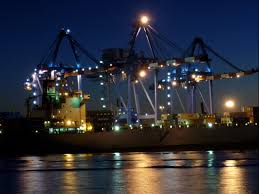Bharat Bhushan Rathi, Head – Distribution and Logistics, Mankind Pharma, highlights the transformative power of technology in pharma logistics, emphasising real-time monitoring, temperature control, and compliance while addressing challenges in supply chain visibility and regulatory requirements.

The landscape of pharma logistics in India has undergone significant evolution over the past decade
The landscape of pharma logistics in India has undergone significant evolution over the past decade, adhering to the principle that “change is the only constant.” Undoubtedly, substantial progress has been made, largely attributed to the increasing integration of technology. This integration has led to a drastic and rapid improvement in services. Notably, the emergence of consolidators stands out as a significant development, as they efficiently aggregate small requirements. Moreover, the utilisation of IT interfaces such as Warehouse Management Systems (WMS), Transportation Management (TM), and resource management tools has facilitated the adoption of energy-efficient practices and real-time monitoring. These advancements have not only enhanced the user experience but have also instilled confidence in the current logistics system. Additionally, emphasising transparency is believed to be pivotal for shaping a better future for pharma logistics in India.
Challenges
Pharma companies grapple with numerous supply chain challenges, exacerbated by domestic uncertainties and stringent regulations. Compliance demands escalate, necessitating adaptable infrastructure. Visibility remains a concern, and many platforms lack comprehensive solutions. While large corporations integrate satellite applications, smaller entities struggle, impacting product viability. Aligning services with government policies could enhance efficiency, but pervasive distrust leads to excessive checks and unsustainable costs. Addressing these challenges is vital for optimising supply chain management and ensuring industry sustainability.
Innovation
Pharma companies employ diverse solutions, like IoT devices for real-time monitoring and virtual tours, to ensure product safety during transportation and storage. However, challenges persist, notably in transport tracking, especially in air shipments, leading to blackout periods and risks for sensitive drugs. Despite these challenges, technology plays a pivotal role in optimising pharma logistics operations. Technologies such as AI and ML-based algorithms enhance tracking, monitoring, and temperature control, improving efficiency and reducing inventory. These advancements enable precise distribution, ensuring timely delivery, and enhancing service levels. Despite ongoing efforts and technological innovations, ensuring product integrity remains a complex endeavour, demanding continuous advancements and vigilance in the pharma logistics sector.
Compliance
Regulatory requirements significantly influence pharma logistics, particularly in ensuring adherence to environmental conditions specified on labels. Companies strive for compliance through online event tracking, auto-log systems, and IoT device integration, enhancing transparency and minimising data manipulation risks. Such measures contribute to the establishment of robust compliance systems, instilling confidence in auditors and stakeholders alike.
Expertise
Selecting logistics partners for pharmaceutical transportation and distribution involves critical considerations. Experience is paramount, particularly regarding the quality of manpower, including training procedures and SOPs. Effective partners should also possess robust contingency plans to address uncertainties in the system. These factors collectively instil confidence in the selection process. Additionally, infrastructure parity with industry standards is essential for seamless operations.











